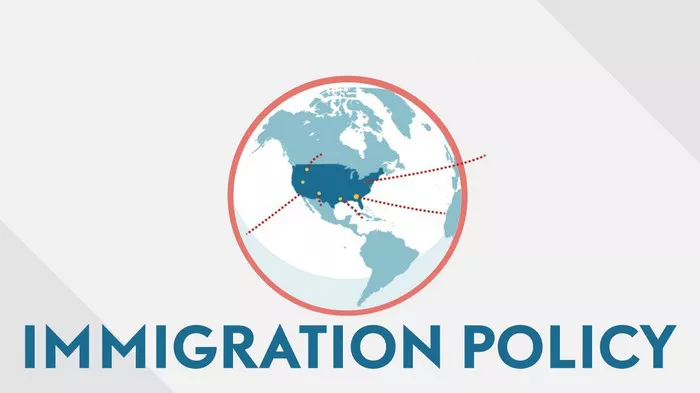In every nation, immigration policy stands as a pivotal aspect of governance, shaping demographics, economies, and societal dynamics. The formulation and implementation of these policies raise critical questions about responsibility, accountability, and the roles of various stakeholders within a country. This article delves into the complex landscape of immigration policy, exploring the actors involved, their responsibilities, and the overarching frameworks that guide their decisions.
The Role of Government Institutions
At the heart of immigration policy are governmental institutions tasked with crafting and enforcing laws that regulate the entry, stay, and rights of immigrants. Depending on the political system, these responsibilities can be divided among several branches of government:
Legislative Branch: In most democratic countries, the legislative branch holds primary responsibility for shaping immigration laws. This typically involves debates, amendments, and the eventual passage of legislation that defines who can immigrate, under what conditions, and with what rights. Parliamentary or congressional committees specializing in immigration often play a crucial role in drafting these laws.
Executive Branch: The executive branch, headed by the government or president, is responsible for implementing immigration policies. This includes overseeing agencies such as immigration departments, border security forces, and visa processing centers. Executive orders and administrative directives issued by the head of state or government can significantly influence immigration policy, particularly in areas like enforcement priorities and deportation procedures.
Judiciary: The judiciary interprets immigration laws and resolves disputes that arise from their application. Courts may rule on the constitutionality of immigration measures, clarify legal ambiguities, and ensure that government actions comply with established legal standards and international obligations.
International and Supranational Actors
Beyond national borders, international and supranational entities also exert influence over immigration policies:
International Organizations: Organizations like the United Nations (UN), the International Organization for Migration (IOM), and the European Union (EU) provide guidelines, frameworks, and sometimes direct assistance to member states in managing immigration. They promote human rights standards, advocate for refugee protection, and facilitate international cooperation on migration issues.
Bilateral and Multilateral Agreements: Countries often engage in bilateral or multilateral agreements to regulate migration flows, address refugee crises, or manage labor migration. These agreements establish rules on issues such as border controls, visa requirements, and the recognition of asylum seekers’ rights.
Regional Bodies: Regional organizations such as the African Union (AU), the Organization of American States (OAS), and the Association of Southeast Asian Nations (ASEAN) may also play roles in coordinating immigration policies among member states, harmonizing regulations, and addressing regional migration challenges.
Non-Governmental Organizations (NGOs) and Civil Society
Civil society organizations and NGOs contribute significantly to immigration policy:
Advocacy and Lobbying: NGOs specializing in immigration rights advocate for policy reforms, challenge discriminatory practices, and provide legal assistance to immigrants. They often serve as watchdogs, monitoring government actions and promoting transparency and accountability.
Service Provision: Many NGOs offer essential services to immigrants, including healthcare, education, legal aid, and integration support. Their work complements government efforts and addresses gaps in service delivery.
Public Engagement: Civil society organizations facilitate public dialogue on immigration issues, educate communities about immigrants’ contributions, and counter misinformation and xenophobia through campaigns and grassroots initiatives.
Private Sector and Employers
The private sector, particularly employers, also plays a crucial role in immigration policy:
Labor Market Needs: Employers influence immigration policies by advocating for visas or permits that meet their workforce needs. They contribute to debates on skills-based immigration and temporary work programs, shaping policies that impact both employers and migrant workers.
Compliance and Advocacy: Businesses must comply with immigration regulations governing the employment of foreign workers. They may engage in advocacy efforts to streamline immigration processes, reduce bureaucratic barriers, and ensure fair treatment of employees.
SEE ALSO: DACA RECIPIENTS: WHO THEY ARE? & WHAT THEY FACE?
Public Opinion and Political Pressure
Public opinion and political pressure significantly influence immigration policy:
Electorate Influence: Public sentiment, shaped by media coverage and political discourse, often drives policy debates. Attitudes toward immigration—whether supportive of multiculturalism and humanitarianism or favoring stricter controls—can sway elected officials’ decisions on legislative reforms and enforcement priorities.
Political Parties: Parties develop platforms on immigration, reflecting their ideological stances and electoral strategies. Debates within legislatures and electoral campaigns frequently feature contrasting visions for immigration policy, highlighting the diversity of perspectives within societies.
Challenges and Controversies
The formulation and implementation of immigration policies are fraught with challenges and controversies:
Complexity and Inconsistency: Immigration systems are complex, involving multiple laws, regulations, and procedures that can be difficult to navigate. Inconsistencies between national, regional, and international frameworks often complicate efforts to manage migration effectively.
Human Rights and Protection Concerns: Balancing national security interests with human rights obligations presents ongoing challenges. Issues such as detention conditions, asylum procedures, and the treatment of vulnerable populations require careful consideration to ensure compliance with international norms and standards.
Political Polarization: Immigration policies frequently provoke political polarization and societal divisions. Debates over border security, refugee resettlement, and cultural integration can deepen ideological rifts and hinder consensus-building among stakeholders.
Conclusion
In conclusion, responsibility for immigration policy is distributed among a diverse array of actors, each playing distinct roles within their spheres of influence. Governments bear primary responsibility for crafting and enforcing laws, while international organizations, civil society, the private sector, and public opinion contribute to shaping policy outcomes. The dynamic interplay among these actors underscores the complexity of immigration governance, reflecting diverse interests, values, and priorities within societies. As global migration trends continue to evolve, the imperative to develop inclusive, equitable, and rights-based immigration policies becomes ever more pressing, necessitating collaborative efforts across sectors and borders to address shared challenges effectively.


